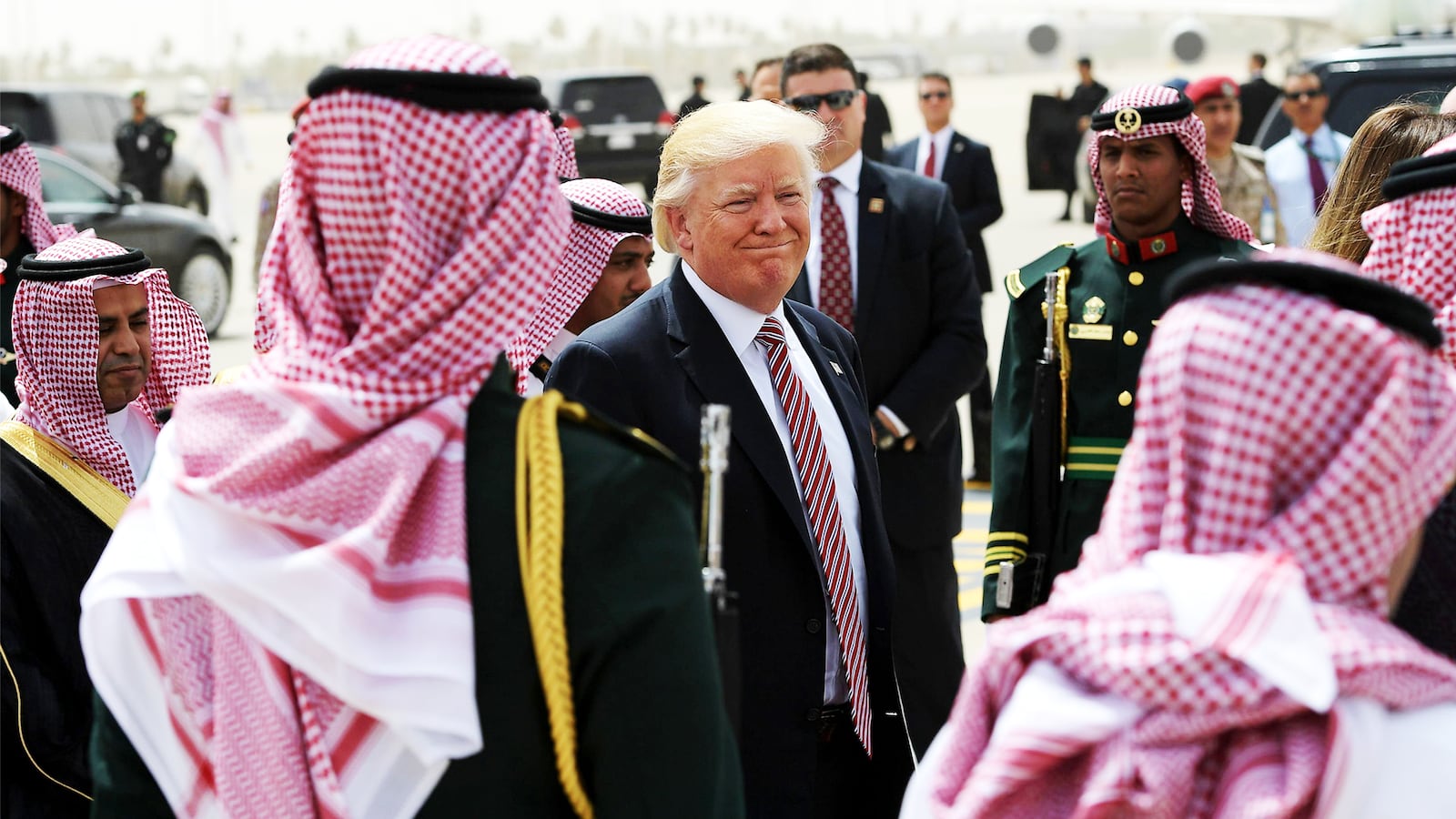President Trump is hosting Saudi Crown Prince Mohammed bin Salman in the Oval Office on Tuesday, a meeting with tremendous opportunity but one also rife with potential pitfalls.
At its core, the discussion will be centered around re-affirming our long-term relationship with Saudi Arabia. But, as with any long-term relationship between countries, the discussion should also be viewed as an opportunity to assess how we’re feeling and if we want anything to change. It also should be seen as an opportunity for this White House to act boldly.
We have leverage with the Kingdom, and now is the time to use it. Saudi Arabia’s relationship with Vladimir Putin continues to deepen, and President Trump should take advantage of his meeting with the Crown Prince to ask Saudi Arabia to turn a colder shoulder toward Russia.
That may seem like a large demand, especially for President Trump, who has been historically reticent to call for any kind of pushback on Russia. But after the Russia-linked CW attack in the U.K. and the now public news that Moscow hacked our electric, water, and nuclear plants, the weight of Russian aggression should be too much for even Trump to ignore. He can start by pressuring Salman. If Saudi Arabia is really a trusted ally, then it too should care about the existential threat to our country and Putin’s ongoing attack on the U.S. and our interests abroad
The Saudi-Russia relationship didn’t used to be mutually exclusive with our own ties with the Kingdom. But a lot has changed since Putin decided to attack every aspect of our democracy.
While Trump has largely turned a blind eye to Russia’s attacks, Saudi Arabia hasn’t exactly toned down their love affair with Russia either. After Putin won his “election” on Sunday, King Salman sent him a congratulatory cable. Salman visited Russia in October, reportedly signed billions in arms deals (which should trigger U.S. sanctions), and deepened the Saudi/ Russia energy partnership.
This doesn’t really paint a picture of the Saudis standing up to defend our interests. Quite the opposite really.
So far in his presidency, Trump has shown himself to be mostly unwilling to push the Saudis, perhaps because he recognized the importance of our security alliance and economic ties. Our relationship — spanning more than 70 years — has had tangible benefits. Saudis buy our weapons, invest in the U.S., and we work together against threats like Iran and Saddam Hussein. Trump’s first foreign trip was to Saudi Arabia where he talked about countering extremism and announced a hefty $100 billion arms deal.
But Trump isn’t always afraid to ruffle feathers. In the ghosts of tweets past, he lambasted Saudi for wanting women as slaves, killing homosexuals, and claiming that the Saudi government had ties to 9/11. Back in November, meanwhile, Trump issued a statement urging the Saudis to lift their blockade of food, water, medicine and fuel into Yemen, which is causing a horrifying humanitarian crisis (the Saudis say the blockade is against Iranian backed rebels in Yemen). Trump’s decision to move the U.S. Embassy to Jerusalem, moreover, definitely didn’t win cheers in Riyadh.
The president should have a real DTR (define the relationship) conversation with Salman in the Oval Office and lay our cards on the table.
The Saudis want us to do more to counter Iranian meddling, and we should want the Saudis to do more to counter Russian meddling (stressing the should here because, again, it’s not clear that Trump will be willing to address this during his meeting). An easy way to establish some new goodwill would be Saudi Arabia canceling their arms deals with Russia because Putin actually wants the money and enjoys the narrative that a major ally of the United States is buying weapons from America’s biggest enemy, Russia. Not to mention the flouting of U.S. sanctions.
We have leverage with the Kingdom, and without getting overly transactional, we should point out that every good relationship is built on mutually beneficial actions. The Oval Office is the ideal date to do some couples therapy, address ways we can help each other out, and move forward, together.
Samantha Vinograd is a CNN National Security Analyst who served on President Obama’s National Security Council and at the US Treasury Under President Bush.






